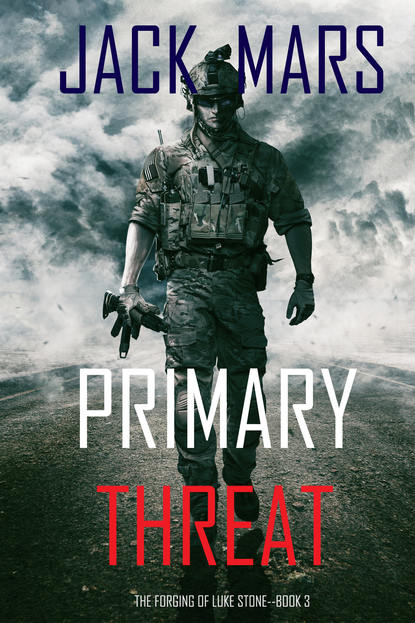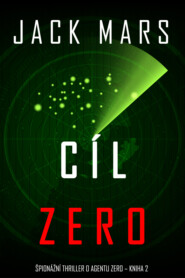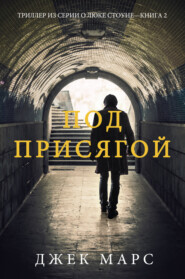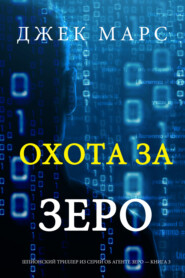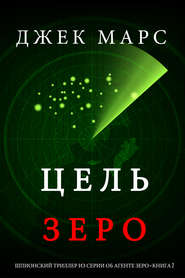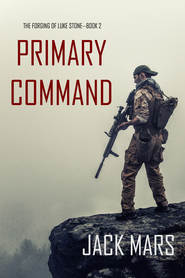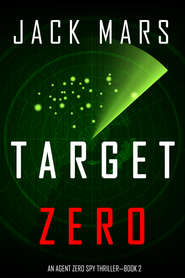По всем вопросам обращайтесь на: info@litportal.ru
(©) 2003-2024.
✖
Primary Threat
Автор
Год написания книги
2020
Настройки чтения
Размер шрифта
Высота строк
Поля
He looked at the general.
“Sir,” Stark said. “The decision to grant that license was made two administrations ago. It was just a matter of perfecting the technology. Granted, it’s controversial. Granted, neither you nor I may agree with it. But I believe that’s a fish to fry at another time. At this moment, we have a terrorist operation underway, with an unknown number of American civilians already dead, and even more American lives at risk. Time is of the essence. And as much as is possible, I think we need to keep this incident, and the nature of that facility, out of the public eye. At least for now. Later, after we rescue our people and the smoke clears, there will be plenty of time for debate.”
Dixon hated that Stark was right. He hated these…
…compromises.
“What do you suggest?” he said.
Stark nodded. On the screen, the image changed and showed a graphic of what appeared to be a group of cartoon scuba divers swimming toward an island.
“We strongly suggest a covert group of highly trained special operators, Navy SEALs, infiltrate the facility, discover the nature of the terrorists and their numbers, decapitate their leadership, and, if at all possible, take back the rig with as little loss of civilian life as circumstances will allow.”
“How many and how soon?” Dixon said.
Stark nodded again. “Sixteen, perhaps twenty. Tonight, within the next several hours, before first light.”
“The men are ready?” Dixon said.
“Yes, sir.”
Dixon shook his head. It was a slippery slope when you were President. That’s what he, despite all his years of experience, had never understood. All his fiery stump speeches, his podium thumping, his demands for a fairer, cleaner world… for what? Everything had been sold down the river before you even started.
The Arctic National Wildlife Refuge was off limits to drilling. From the surface. So they parked themselves at sea and drilled from beneath it. Of course they did. They were like termites, always biting, gnawing, and turning the sturdiest construction into a house of cards.
And then the men doing the drilling were attacked and held hostage. And as President, what were you supposed to say—“Let them eat cake”?
Not a chance. They were Americans, and on some hard-to-understand level, they were innocents. Just doing my job, ma’am.
Dixon looked at Thomas Hayes. Of all the men in this room, Hayes would be the closest to his own thoughts on this. Hayes would probably be feeling boxed in, betrayed, frustrated, and flabbergasted, just like Clement Dixon.
“Thomas?” Dixon said. “Thoughts?”
Hayes didn’t even hesitate. “I understand it’s a discussion for another time, but I’m shocked to hear that we’re drilling in a natural environment that needs to be cherished and protected. I’m shocked, but not surprised, and that’s the worst part.”
He paused. “After these men are rescued, and as you say the smoke clears, I think we need to revisit the moratorium on drilling, and make it crystal clear that no drilling means no drilling, whether from the surface or from under the sea.
“Further, if there is going to be a military action here, I think we need to make sure there’s civilian oversight of the entire operation from beginning to end. No offense, General, but you guys at the Pentagon have a tendency to swing at mosquitoes with sledgehammers. I think we’ve heard about one too many wedding receptions in the Middle East being annihilated by drone strikes.”
General Stark looked like he was about to say something in reply, then stopped himself.
“Can you do that, General Stark?” Dixon said. “No matter how many military assets are involved, can you guarantee me civilian oversight and participation during the entire operation?”
The general nodded. “Yes, sir. I know the exact civilian agency for the job.”
“Then do it,” Dixon said. “And save those men on the rig if you can.”
CHAPTER THREE
10:01 p.m. Eastern Daylight Time
Ivy City
Northeast Washington, DC
A large man sat on a metal folding chair, in a quiet corner of an empty warehouse. He shook his head and moaned.
“Don’t do this,” he said. “Don’t do this thing.”
He was blindfolded, but even with the rag obscuring part of his face, it was easy to see that he was bruised and beaten. His mouth was swollen. His face was covered by sweat and some blood, and the back of his white T-shirt was stained with perspiration. There was a dark stain across the crotch of his blue jeans, where he had wet himself moments ago.
From the ends of his shirtsleeves to his wrists was a dense tangle of tattoos. The man looked strong, but his wrists were manacled behind his back, and his arms were secured to the chair with heavy chains.
His feet were bare, and his ankles were also cuffed with steel manacles—they were cuffed so close together that if he managed to stand up and tried to walk, he would have to bounce instead.
“Do what thing?” Kevin Murphy said.
Murphy was tall, slim, very fit. His eyes were hard, and there was a small scar across his chin. He wore a blue dress shirt, dark dress pants, and polished black Italian leather shoes. His sleeves were rolled just a couple of turns up his forearms. There was nothing rumpled, sweaty, or bloody about him. He did not appear to have made any sort of strenuous exertion. Indeed, he could be on his way to a late dinner at a nice restaurant. The only things that didn’t quite fit his look were the black leather driving gloves he wore on his hands.
For a few seconds, Murphy and the man in the chair were like statues, standing stones at some medieval burial site. Their shadows slanted away diagonally in the bleak yellow half-light illuminating this small corner of the vast warehouse.
Murphy took a few steps away across the stone floor, his footfalls echoing in the cavernous space.
He was dealing with an odd combination of feelings right now. For one, he felt relaxed and calm. He was just settling in to the interview, and he had the next few hours if he needed them. No one was coming here.
Outside of the gates to this warehouse was a slum. It was a concrete wasteland, dismal shops all crammed together, liquor stores, check cashing, and payday loan places. Crowds of women carrying plastic bags waited at bus kiosks in the daytime, drunken men on street corners held beer cans and cheap wine in brown paper bags all day and into the night.
Right now, Murphy could hear the sounds of the neighborhood: passing cars, music, shouts and laughter. But it was getting late, and things were beginning to quiet down. Even this neighborhood eventually went to sleep.
So yes, in the near term, Murphy had time. But in the larger sense, time was not his friend. He was a former Delta Force operator and a probationary employee of the FBI Special Response Team. He had performed well so far, including what was considered a brilliant performance in a smoking hot gunfight up in Montreal during his very first assignment.
What no one understood was how brilliant that performance really was. He had played both sides, and before the battle, convinced former CIA operative Wallace Speck, the so-called “Dark Lord” himself, to wire two and a half millions dollars to Murphy’s anonymous account on Grand Cayman.
Now Speck was in federal prison and facing the death penalty. That left a question looming large in Murphy’s life: Was Speck talking to his captors? And if so, what was he saying?
Did Speck even know who Kevin Murphy was?
“Don’t kill me,” the man in the chair said.
Murphy smiled. Nearby to the man was another chair. Murphy’s sports jacket was draped over it. Underneath the jacket were his holster and his gun. In the pocket of his pants was the large sound suppressor that fit the gun like a hand fits a glove.
Made for each other. How did that old TV ad go? Perfect together.
“Kill you? Why would I do that?”
The man shook his head and began to cry. His big upper body heaved with sobs. “Because that’s what you do.”
Murphy nodded. True enough.
“Sir,” Stark said. “The decision to grant that license was made two administrations ago. It was just a matter of perfecting the technology. Granted, it’s controversial. Granted, neither you nor I may agree with it. But I believe that’s a fish to fry at another time. At this moment, we have a terrorist operation underway, with an unknown number of American civilians already dead, and even more American lives at risk. Time is of the essence. And as much as is possible, I think we need to keep this incident, and the nature of that facility, out of the public eye. At least for now. Later, after we rescue our people and the smoke clears, there will be plenty of time for debate.”
Dixon hated that Stark was right. He hated these…
…compromises.
“What do you suggest?” he said.
Stark nodded. On the screen, the image changed and showed a graphic of what appeared to be a group of cartoon scuba divers swimming toward an island.
“We strongly suggest a covert group of highly trained special operators, Navy SEALs, infiltrate the facility, discover the nature of the terrorists and their numbers, decapitate their leadership, and, if at all possible, take back the rig with as little loss of civilian life as circumstances will allow.”
“How many and how soon?” Dixon said.
Stark nodded again. “Sixteen, perhaps twenty. Tonight, within the next several hours, before first light.”
“The men are ready?” Dixon said.
“Yes, sir.”
Dixon shook his head. It was a slippery slope when you were President. That’s what he, despite all his years of experience, had never understood. All his fiery stump speeches, his podium thumping, his demands for a fairer, cleaner world… for what? Everything had been sold down the river before you even started.
The Arctic National Wildlife Refuge was off limits to drilling. From the surface. So they parked themselves at sea and drilled from beneath it. Of course they did. They were like termites, always biting, gnawing, and turning the sturdiest construction into a house of cards.
And then the men doing the drilling were attacked and held hostage. And as President, what were you supposed to say—“Let them eat cake”?
Not a chance. They were Americans, and on some hard-to-understand level, they were innocents. Just doing my job, ma’am.
Dixon looked at Thomas Hayes. Of all the men in this room, Hayes would be the closest to his own thoughts on this. Hayes would probably be feeling boxed in, betrayed, frustrated, and flabbergasted, just like Clement Dixon.
“Thomas?” Dixon said. “Thoughts?”
Hayes didn’t even hesitate. “I understand it’s a discussion for another time, but I’m shocked to hear that we’re drilling in a natural environment that needs to be cherished and protected. I’m shocked, but not surprised, and that’s the worst part.”
He paused. “After these men are rescued, and as you say the smoke clears, I think we need to revisit the moratorium on drilling, and make it crystal clear that no drilling means no drilling, whether from the surface or from under the sea.
“Further, if there is going to be a military action here, I think we need to make sure there’s civilian oversight of the entire operation from beginning to end. No offense, General, but you guys at the Pentagon have a tendency to swing at mosquitoes with sledgehammers. I think we’ve heard about one too many wedding receptions in the Middle East being annihilated by drone strikes.”
General Stark looked like he was about to say something in reply, then stopped himself.
“Can you do that, General Stark?” Dixon said. “No matter how many military assets are involved, can you guarantee me civilian oversight and participation during the entire operation?”
The general nodded. “Yes, sir. I know the exact civilian agency for the job.”
“Then do it,” Dixon said. “And save those men on the rig if you can.”
CHAPTER THREE
10:01 p.m. Eastern Daylight Time
Ivy City
Northeast Washington, DC
A large man sat on a metal folding chair, in a quiet corner of an empty warehouse. He shook his head and moaned.
“Don’t do this,” he said. “Don’t do this thing.”
He was blindfolded, but even with the rag obscuring part of his face, it was easy to see that he was bruised and beaten. His mouth was swollen. His face was covered by sweat and some blood, and the back of his white T-shirt was stained with perspiration. There was a dark stain across the crotch of his blue jeans, where he had wet himself moments ago.
From the ends of his shirtsleeves to his wrists was a dense tangle of tattoos. The man looked strong, but his wrists were manacled behind his back, and his arms were secured to the chair with heavy chains.
His feet were bare, and his ankles were also cuffed with steel manacles—they were cuffed so close together that if he managed to stand up and tried to walk, he would have to bounce instead.
“Do what thing?” Kevin Murphy said.
Murphy was tall, slim, very fit. His eyes were hard, and there was a small scar across his chin. He wore a blue dress shirt, dark dress pants, and polished black Italian leather shoes. His sleeves were rolled just a couple of turns up his forearms. There was nothing rumpled, sweaty, or bloody about him. He did not appear to have made any sort of strenuous exertion. Indeed, he could be on his way to a late dinner at a nice restaurant. The only things that didn’t quite fit his look were the black leather driving gloves he wore on his hands.
For a few seconds, Murphy and the man in the chair were like statues, standing stones at some medieval burial site. Their shadows slanted away diagonally in the bleak yellow half-light illuminating this small corner of the vast warehouse.
Murphy took a few steps away across the stone floor, his footfalls echoing in the cavernous space.
He was dealing with an odd combination of feelings right now. For one, he felt relaxed and calm. He was just settling in to the interview, and he had the next few hours if he needed them. No one was coming here.
Outside of the gates to this warehouse was a slum. It was a concrete wasteland, dismal shops all crammed together, liquor stores, check cashing, and payday loan places. Crowds of women carrying plastic bags waited at bus kiosks in the daytime, drunken men on street corners held beer cans and cheap wine in brown paper bags all day and into the night.
Right now, Murphy could hear the sounds of the neighborhood: passing cars, music, shouts and laughter. But it was getting late, and things were beginning to quiet down. Even this neighborhood eventually went to sleep.
So yes, in the near term, Murphy had time. But in the larger sense, time was not his friend. He was a former Delta Force operator and a probationary employee of the FBI Special Response Team. He had performed well so far, including what was considered a brilliant performance in a smoking hot gunfight up in Montreal during his very first assignment.
What no one understood was how brilliant that performance really was. He had played both sides, and before the battle, convinced former CIA operative Wallace Speck, the so-called “Dark Lord” himself, to wire two and a half millions dollars to Murphy’s anonymous account on Grand Cayman.
Now Speck was in federal prison and facing the death penalty. That left a question looming large in Murphy’s life: Was Speck talking to his captors? And if so, what was he saying?
Did Speck even know who Kevin Murphy was?
“Don’t kill me,” the man in the chair said.
Murphy smiled. Nearby to the man was another chair. Murphy’s sports jacket was draped over it. Underneath the jacket were his holster and his gun. In the pocket of his pants was the large sound suppressor that fit the gun like a hand fits a glove.
Made for each other. How did that old TV ad go? Perfect together.
“Kill you? Why would I do that?”
The man shook his head and began to cry. His big upper body heaved with sobs. “Because that’s what you do.”
Murphy nodded. True enough.





